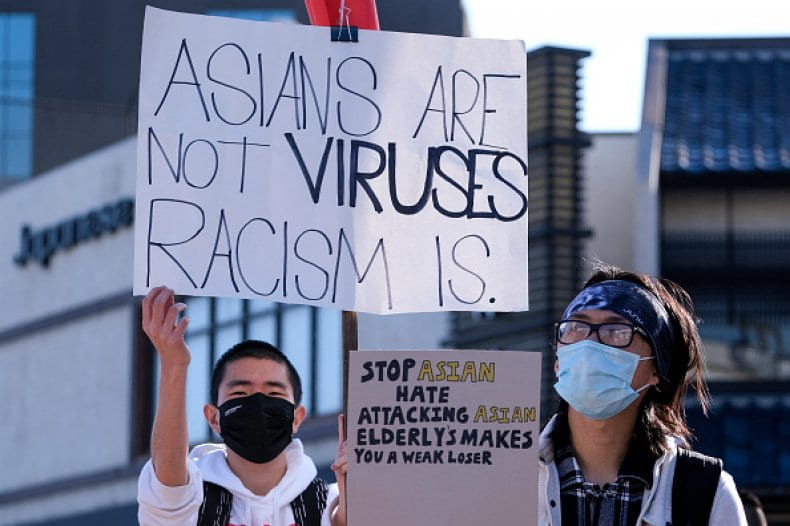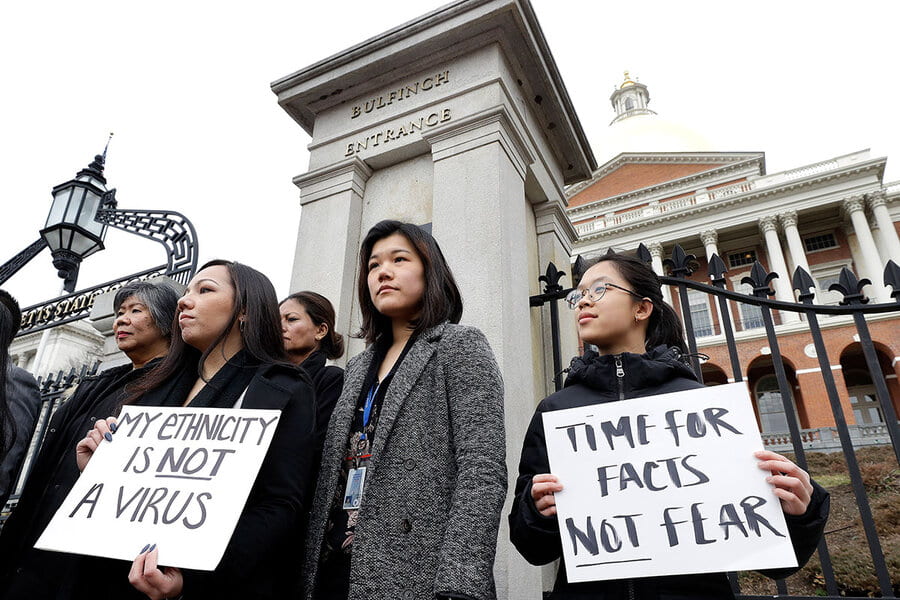In light of the COVID-19 pandemic which originated in China, xenophobic attitudes towards Asian Americans have spiked and resulted in a communal fear among Asian Americans. The STOP AAPI (Asian American and Pacific Islander) Hate reporting center formed in San Francisco on March 19, 2020, in hopes of keeping a record for hate crimes towards Asian Americans. Since last spring, Stop AAPI Hate has reported more than 2,800 incidents, ranging from “verbal abuse and workplace discrimination to storefront vandalism and physical violence,” several of which have been fueled by xenophobic sentiment. The sentiment seeks to scapegoat Asian Americans for coronavirus, and the sentiment has only propelled further by former President Donald Trump’s use of racist terms to describe the virus.
Some examples of this anti-Asian sentiment include violence towards elderly members of the AAPI community. In San Francisco, 84-year old Vicha Ratanapakdee died after getting shoved to the ground. A 91-year old in Oakland, CA, was brutally pushed from behind. In San Jose, a 64-year old woman was robbed in the middle of the afternoon. These attacks have had devastating impacts, as Cynthia Choi, a co-founder of Stop AAPI Hate, said in a press call. She elaborated that the AAPI community is “fearful of being in public alone, simply going for a walk and living our daily lives.” Activists have been trying to draw attention to these instances of violence and are putting forth their best effort in pressuring local governments to provide more financial support for victims. The activists also have emphasized the necessity for communities of color to stand in solidarity and focus on cross-racial education and healing in order to “raise awareness about the discrimination that different groups experience.”

Another horrific incident occurred in Atlanta, Georgia, on March 16, 2021 which resulted in the deaths of six Asian women and two others who were shot in their workspace by Robert Aaron Long. Long claims he was not racially motivated, but he did target Asian-owned spas. The shooting has not only shaken up the Georgia Asian community but the entire nation, and the event has received immense backlash from all communities. It is unfortunate that a shooting is bringing attention to this ongoing issue.
Asian American lawmakers are also taking a stance to respond to the anti-Asian racism. They want Congress to pass the No Hate Act, which boosts local government funding for tracking hate incidents, along with a meeting with the U.S. Department of Justice and a hearing about recent attacks. These efforts are led by the Congressional Asian Pacific American Caucus, chaired by Rep. Judy Chu (D-CA), and has gained support from House Speaker Nancy Pelosi and lawmakers in the Congressional Black and Hispanic Caucuses. Previously passed in the House of Representatives as part of the Heroes Act, the No Hate Act aims to establish regional hotlines for people to report hate crimes, provide resources for local governments to investigate the reported crimes, and focus on the rehabilitation of offenders through community service. The lawmakers in favor of this act claim that AAPI hatred and bigotry is not a new concept in America, quoting the Chinese Exclusion Act of 1882 which framed the Asian American population as “forever foreigners” in the United States. Having such a xenophobic attitude dating from so long ago is something that must be dug deeper into for it to be eradicated from the American mindset.

The severe disrespect and violence that members of the AAPI community are enduring for a pandemic that has affected the entire global population is unfair and inappropriate. In any community, the elderly are valued as wise people who have enlightening advice to pass onto their successors. The act of even pushing someone who is a senior citizen is a very lowly act that should not go unobserved or unchallenged, especially by the federal government. And the shooting of 8 people, 6 of which are Asian, is not as coincidental as Robert Aaron Long may claim. Xenophobia is a very damaging concept that is unfortunately part of American history, but that does not mean it should be repeated, especially in a time of dire need for unity against a global pandemic.
